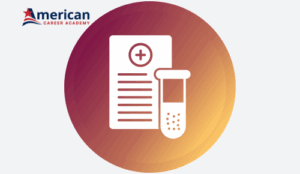Medical Administrative Assistant + Billing & Coding Program
Anatomy, medical terminology, health information management, insurance billing, electronic health records (EHR), and healthcare law
This Program establishes a strong foundation in basic accounting concepts and proceeds to develop an understanding of the relationships between the numbers and concepts and how variables impact each others.
The Healthcare Administration and Medical Billing & Coding Program provides students with a comprehensive understanding of both the clinical and administrative sides of the healthcare industry.
- 24/7 Student Support available

- Duration 12 Months
- Clock Hours- 255
- Certification
What you will learn
- Understand the structure and functions of the healthcare industry, including professional roles, ethics, and communication strategies.
- Master medical terminology, anatomy, and physiology to accurately interpret patient information and documentation.
- Learn the principles of health insurance, billing, and coding using ICD-10, CPT, and HCPCS systems.
- Gain skills in managing patient records and maintaining compliance with HIPAA and other legal standards.
- Develop proficiency in using Electronic Health Record (EHR) systems for documentation and workflow management.
- HIT-1000 - Introduction to Healthcare
- Explore medical law and ethics to understand the responsibilities and rights of healthcare professionals.
- Learn how to process insurance claims and ensure proper reimbursement using the global standard designed by the World Health Organization, ICD-10 – CM for diagnoses and ICD-10-PCS for inpatient procedures and CPT-4 code set maintained by the American Medical Association (AMA) to report medical, surgical, and diagnostic procedures.
- Build familiarity with managed care systems and methods used to control healthcare costs.
- Enhance professionalism through training in patient communication, safety, and workplace efficiency.
Course Description
Step-by-Step Breakdown of Your Program
HIT-1000 - Introduction to Healthcare
This course is designed to teach the students about the variety of careers, educational requirements and professional development standards in healthcare, the evolution of the structure in the industry and its current issues, legal and ethical responsibility of healthcare professionals, strategies for communicating with patients and team members, understanding the technology and documentation in healthcare, and then how the business of healthcare functions. The course then turns to preparing for new careers with guidance on personal and environmental safety, and then job research, resume preparation, tips for interviewing for healthcare jobs, and then finally employment strategies within the healthcare industry.
HIT-1300 - Anatomy, Physiology, & Medical Terminology
This module is intended to instruct the student in word parts used to form medical terms, the structural organization of the body, body systems, common abbreviations, pathologic conditions, and diagnostic procedures related to specific body systems. Students are reviewed in basic concepts of biology biochemistry (cell theory, cell structure, cell metabolism, and cell reproduction) before proceeding to a detailed study of the normal histology, gross anatomy, and physiology of each body system within the human organism. Emphasis is placed on homeostatic mechanisms as they relate to health and disease.
HIT- 1500 - Understanding Health Insurance, Billing/Coding
This course is intended to instruct the participants towards information about major insurance programs and federal health care legislation. It provides participants with knowledge in Electronic Data interchange and a basic knowledge of national diagnosis and procedure coding systems. Participants will be able to accurately utilize the ICD-10, CPT, and HCPCS coding systems and simplify the process of completing claims. This course in conjunction with the other courses in the billing and coding program will help prepare participants to sit for the National Healthcare Association’s (NHA) Certified Medical Administrative Assistant (CMAA) certification, Electronic Health Records
HIT-2000 - Administrative Healthcare
This course is intended to instruct the student in the administrative functions of a medical setting. It will expose the student to the medicolegal and ethical responsibilities associated with the position of a Medical Assistant. The student will become familiar with various forms of scheduling appointments and various systems of filing medical and business records. In addition, learners will gain knowledge and skills in record management, scheduling, and the role of office manager.
HIT- 2200 - Medical Law & HIPPA Compliance
This course covers medical law, liability, and ethics which will familiarize the students with how the medicolegal system functions, what constitutes malpractice, and ethics as it relates to births and deaths. The module also instructs the student in understanding the reasoning behind the Health Insurance Portability and Privacy Accountability Act of 1996, appreciate the need to protect the privacy and security of health information, and know the areas in the delivery of health care that are affected by HIPAA.
HIT-2300 - Health Information Management
The course is designed to introduce the student to the basic services of the health information department, the purpose of the patient health record, general documentation issues that impact all patient records and accreditation standards and federal and state laws and regulations that impact patient record content. Students learn how health care workers apply ethics on the job, explain the purpose of managed care systems and describe methods used to control costs, identify the major categories of health record filing, understand uses of indexes, registers and health data collection, and maintain confidentiality of the patient health record.
HIT – 2500 - Electronic Health Records
This course introduces learners to the fundamental components, terminology, and functions associated with electronic health record (EHR) systems in the health care provider practice. The role of the EHR in facilitating complete documentation, efficient workflow and timely communications among clinicians, staff, and patients are included in the knowledge gained from the course. Students learn through a virtual EHR software system to provide hands-on experience completing common work tasks in the health care provider office setting.
Student Support Services
We’ve Got You Covered
Facing technical issues? Our dedicated support team is here 24/7 to resolve login, access, or platform-related problems.
Learn Without Limits
Need help understanding your course material? Instantly connect with your instructor for personalized guidance and quick answers.
Student Support – Beyond the Classroom
From academic advising to career guidance, our student services team is ready to assist you with all aspects of your journey.




